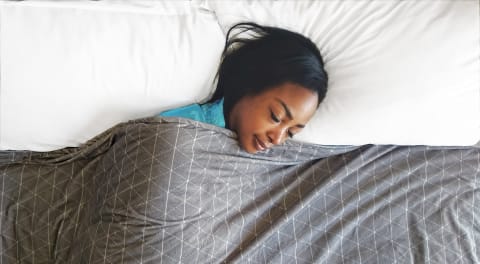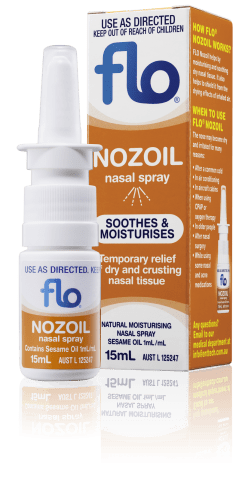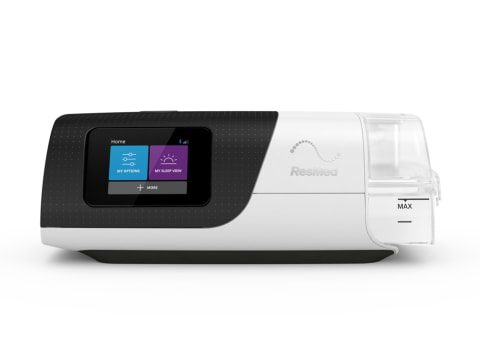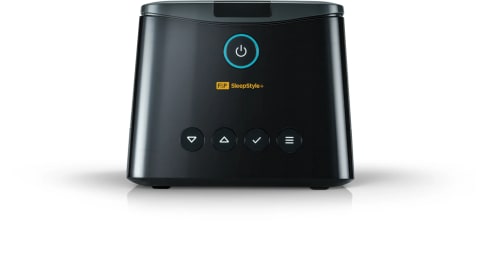Difference between CPAP and Bilevel
Difference Between CPAP and Bilevel Therapy
A Patient’s Guide from Sove CPAP Clinic
If you’ve recently been diagnosed with sleep apnea, or if you’re already using CPAP therapy, you might be curious about another therapy called bilevel or BiPAP. Understanding the difference between CPAP and bilevel therapy is key to choosing the right treatment for your needs and ensuring comfortable, effective therapy. At Sove CPAP Clinic, we’re committed to providing clear, supportive information to help you make informed decisions about your sleep health. Let’s explore the differences between CPAP and bilevel therapy, when each might be recommended, and how to get the most from your treatment.
What is the Main Difference Between CPAP and Bilevel Therapy?
Let’s start with the basics. CPAP (Continuous Positive Airway Pressure) therapy delivers a constant, steady stream of air at a single fixed pressure to keep your airway open while you sleep. It’s the most common therapy for obstructive sleep apnea and is effective for many people.
Bilevel therapy, often called BiPAP or bilevel PAP, is a bit different. It provides two levels of air pressure: a higher pressure when you inhale (IPAP – Inspiratory Positive Airway Pressure) and a lower pressure when you exhale (EPAP – Expiratory Positive Airway Pressure). This difference in pressures can make breathing more comfortable for some users, especially if they have higher pressure needs or certain medical conditions.
In essence:
CPAP: One constant pressure all night.
Bilevel: Two separate pressures—higher when inhaling, lower when exhaling.
Understanding this difference is crucial because it can affect how comfortable you feel during therapy and how well the machine treats your apnea.
Clinical Needs Determine When to Choose CPAP or Bilevel Therapy
Most people diagnosed with obstructive sleep apnea start with CPAP therapy. It’s straightforward, effective, and usually the first-line treatment. However, bilevel therapy might be recommended in certain clinical situations, such as:
High CPAP Pressure Needs: If your prescribed CPAP pressure is high (often above 15 cmH2O), exhaling against that pressure can feel challenging. Bilevel therapy makes exhaling easier by dropping the pressure when you breathe out.
Central Sleep Apnea: If you have both obstructive and central apnea events, bilevel therapy can help stabilise your breathing by providing a more natural airflow.
Your sleep specialist and the team at Sove CPAP Clinic can assess your sleep study results, symptoms, and overall health to recommend the most appropriate therapy.
CPAP and Bilevel Therapies Each Have Their Own Benefits and Challenges
Both CPAP and bilevel therapies aim to keep your airway open and prevent apnea events, but they differ in how they deliver that support.
CPAP Benefits:
- Simple to use and maintain.
- Usually more affordable.
- Well-supported with a wide range of masks and accessories.
- Often the first choice for most patients with obstructive sleep apnoea.
CPAP Challenges:
- Some people find exhaling against the constant pressure uncomfortable, especially at higher settings.
- May not adequately treat certain forms of complex sleep apnea.
Bilevel Benefits:
- Easier to exhale against lower EPAP pressure, which can improve comfort and adherence.
- Can be tailored to treat certain types of sleep apnea more effectively.
- Offers more advanced features for patients with special respiratory needs.
Bilevel Challenges:
- Typically more expensive than standard CPAP machines.
- Settings are more complex, so professional adjustment and follow-up are important.
- Some users may find the transitions between pressures noticeable at first.
At Sove CPAP Clinic, we’re here to help you navigate these differences and find the therapy that works best for you. Whether you’re starting CPAP or bilevel therapy, our team can help with machine setup, mask fitting, and ongoing support to keep your treatment on track.
 ResMed Lumis 150 VPAP ST-A 4G with Built-in Wireless Connectivity, ...
ResMed Lumis 150 VPAP ST-A 4G with Built-in Wireless Connectivity, ...
 ResMed Lumis 150 VPAP ST with Built-in Wireless Connectivity, Humid...
ResMed Lumis 150 VPAP ST with Built-in Wireless Connectivity, Humid...
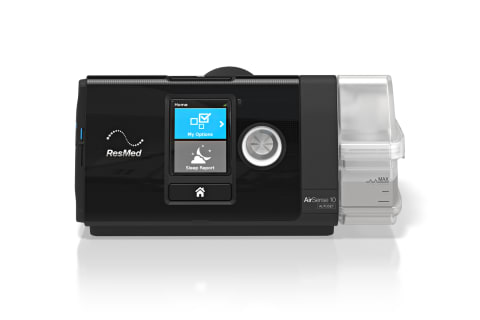 Further $50 Off with code "VALENTINES50"
ResMed AirSense 10 AutoSet 4G CPAP Machine
Further $50 Off with code "VALENTINES50"
ResMed AirSense 10 AutoSet 4G CPAP Machine
Selecting the Right Therapy Depends on Sleep Data and Patient Comfort
Choosing between CPAP and bilevel therapy isn’t always straightforward. It’s based on a combination of factors, including:
- Sleep Study Results: Your sleep study shows how many apnea events you experience, your oxygen levels, and whether you have central apneas or other breathing issues that might respond better to bilevel therapy.
- Pressure Requirements: If you need higher pressures to keep your airway open, bilevel therapy can make therapy more comfortable by reducing exhalation pressure.
- Comfort and Tolerance: Some people simply tolerate one therapy better than the other. Comfort is a key factor in long-term adherence, which is essential for effective therapy.
- Medical Considerations: If you have underlying health conditions affecting your breathing, your specialist may recommend bilevel therapy.
No matter which therapy you’re prescribed, Sove CPAP Clinic can help you adjust, troubleshoot, and ensure that your therapy is both comfortable and effective.
ALWAYS FOLLOW THE DIRECTIONS FOR USE. CPAP is used for Obstructive Sleep Apnoea treatment. When considering whether a sleep study or CPAP is right for you, speak to your doctor. Medicare criteria and T&Cs apply.
Frequently Asked Questions
What is the primary difference between a CPAP machine and a BiPAP or bilevel PAP machine?
The main difference is how they deliver air pressure. CPAP machines provide one continuous level of pressure throughout the night to keep your airway open. Bilevel PAP machines, on the other hand, offer two distinct pressures: a higher pressure during inhalation and a lower pressure during exhalation. This makes bilevel therapy more comfortable for people who struggle to exhale against high pressure or who need additional respiratory support. If you’re unsure which therapy is right for you, the team at Sove CPAP Clinic can help interpret your sleep study data and recommend the best option.
What is the difference between CPAP and BiPAP for EMS?
In emergency medical services (EMS), CPAP is often used in the field to provide immediate support for patients in respiratory distress. It’s relatively simple to administer and helps keep the airway open during acute situations like congestive heart failure or severe COPD exacerbations. BiPAP, being more complex and requiring additional monitoring, is usually reserved for hospital settings where patients can be closely observed. EMS teams typically use CPAP because it’s effective and easy to deploy rapidly.
Does CPAP remove fluid from lungs?
CPAP therapy doesn’t directly remove fluid from the lungs. However, by providing continuous airway pressure, CPAP can help prevent fluid buildup caused by conditions like congestive heart failure. The pressure helps keep the alveoli (air sacs) open, which can improve oxygenation and reduce the risk of fluid accumulation in the lungs. If you have concerns about fluid in your lungs, talk to your doctor about how CPAP might fit into your overall treatment plan.
How do I know if I need CPAP or BiPAP?
A sleep study is the best way to determine which therapy is right for you. It measures your breathing patterns, oxygen levels, and apnoea events during sleep. If you have mild to moderate obstructive sleep apnoea, CPAP is often recommended. If you have higher pressure needs, central sleep apnoea, or difficulty exhaling against a single pressure, bilevel therapy might be more suitable. Sove CPAP Clinic can review your sleep study and work with your doctor to choose the best therapy for your needs.
When would you use CPAP in an EMT setting?
In pre-hospital care, EMTs use CPAP for patients with respiratory distress, such as those with congestive heart failure, COPD, or severe asthma. CPAP helps by delivering constant positive pressure to keep the airways open and improve oxygenation. It’s a quick, non-invasive way to stabilise patients while they’re transported to the hospital. Bilevel therapy, with its more complex settings, is generally not used in this setting.
Does Medicare pay for CPAP machines?
Yes, Medicare typically covers CPAP therapy for patients diagnosed with obstructive sleep apnoea, provided certain criteria are met. This includes documentation from a sleep study confirming your diagnosis. Medicare may also cover supplies like masks, tubing, and filters at regular intervals. However, the coverage details can vary, so it’s best to check with your provider and with Sove CPAP Clinic’s staff, who can help you navigate the paperwork and ensure you get the equipment you need.
Do nasal CPAP models help mitigate snoring?
Yes, nasal CPAP masks can be very effective in reducing or eliminating snoring, particularly when the snoring is caused by airway collapse (obstructive sleep apnoea). The pressurised air keeps the airway open, preventing the vibrations that cause snoring. However, if you mouth breathe at night, you may need a chin strap or full-face mask to get the best results. Sove CPAP Clinic offers mask fitting services to help you find the right style and size for your needs.
Can I adjust the CPAP pressure to reduce snoring?
You shouldn’t adjust your CPAP pressure on your own without medical advice. The pressure is carefully prescribed based on your sleep study to treat your apnoea effectively and safely. If you’re still snoring while using your CPAP, it could indicate leaks, incorrect pressure settings, or mask fit issues. It’s best to talk to your sleep specialist or the team at Sove CPAP Clinic for help troubleshooting and adjusting your settings appropriately.
Does Sove CPAP Clinic offer trials for people concerned about snoring?
Absolutely! At Sove CPAP Clinic, we offer trial programs that let you experience CPAP or bilevel therapy before committing to a purchase. These trials include a comprehensive consultation, professional mask fitting, and the use of a modern device at home. This helps you determine whether therapy effectively reduces your snoring and improves your sleep. We’re dedicated to ensuring you’re comfortable and confident with your treatment.




